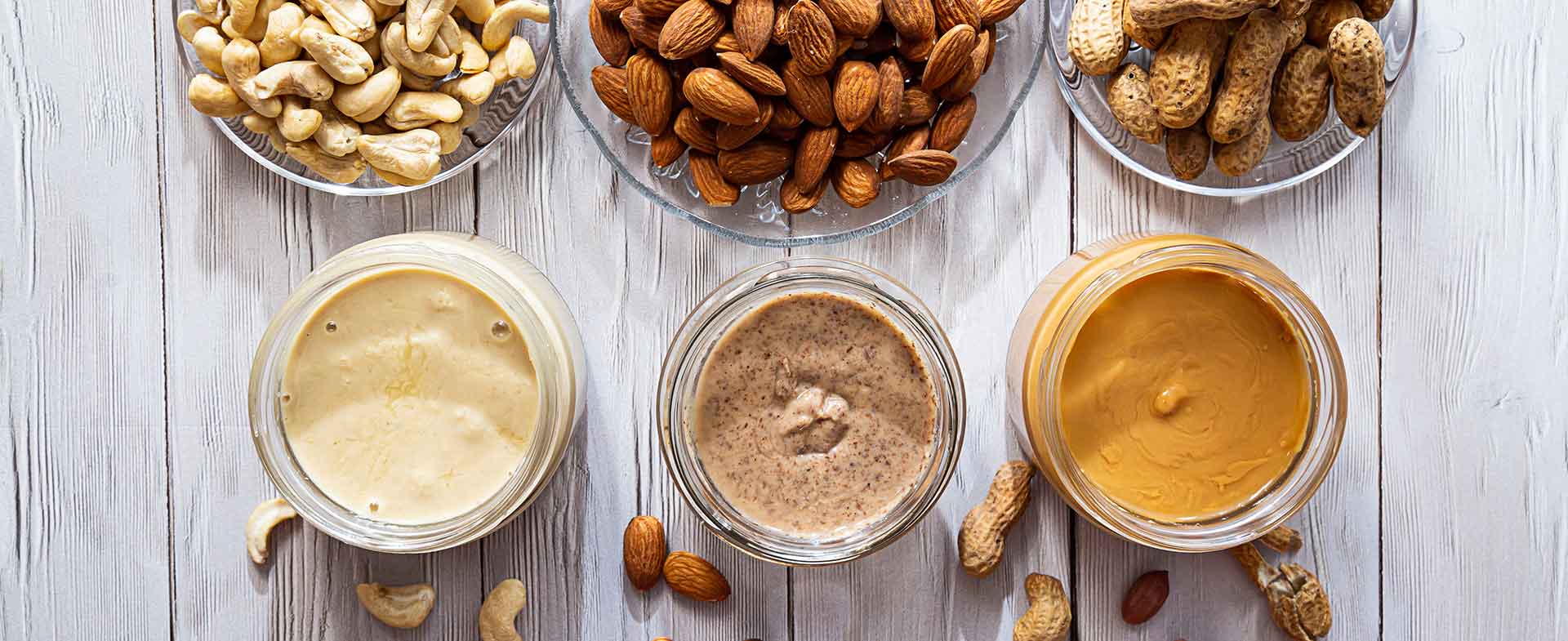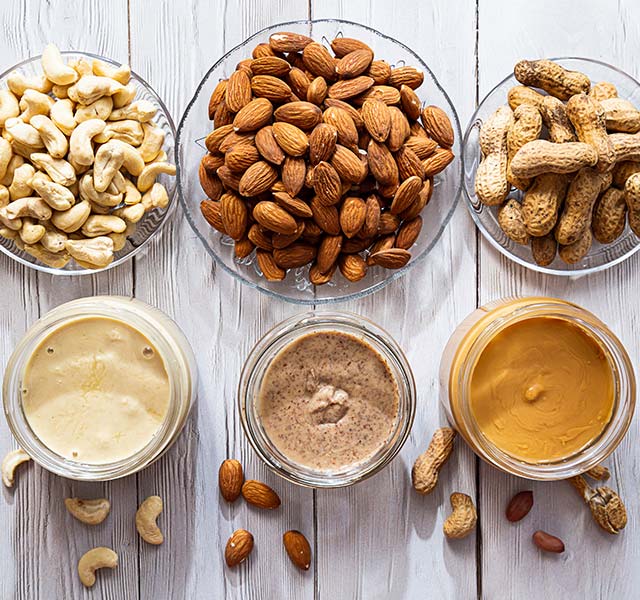When it comes to nut butters, peanut is undoubtedly the most popular on the shelf. Yet, on a recent grocery store trip, I discovered there's a world of flavor in the nut butter aisle. The good news: Almost all of these spreads boast a mix of healthful nutrients including monounsaturated fat, vitamin E, B vitamins, protein and fiber.
Nut Butter Varieties
Once only made of peanuts and used as a key sandwich ingredient, butters made from nuts ranging from almonds to sunflower seeds are taking center stage on toast, apples, bananas and baked goods.
Most nut butters contain between 80 and 120 calories and 8 to 10 grams of fat per tablespoon. Just keep in mind that a single serving may not spread far when you're smearing it on a bagel or toast. Here's more on how the different nut butters break down:
- Peanut butter: Peanut butter is the most affordable and the highest in protein of the nut butter bunch (8 grams per two tablespoons). It also contains 3 grams of fiber and 18 milligrams of calcium. Unless you have peanut allergies, it's a solid choice with remarkable versatility. Beyond the standard peanut butter and jelly, you can use peanut butter in baking, stir it into savory sauces or just pair it with apples and celery.
- Almond butter: Almond butter weighs in at 200 calories and nearly 19 grams of fat per serving, most of which is heart-healthy monounsaturated fat. With 6 grams of protein and 3 grams of fiber, almond butter can help stave off hunger pangs between meals. Try it in oatmeal, swirl it into ice cream, or use it as a base for muffins, cakes and cookies.
- Walnut butter: Of all the nut butters on the shelf, walnut butter contains the highest level of heart-healthy omega-3 fatty acids. The healthful nutrient profile can help keep cholesterol levels in check and reduce inflammation. The trade-off: at 5 grams, walnut butter is lower in protein than most other nut butters.
- Cashew butter: Cashew butter is one of the creamiest of the lot; it can even serve as a substitute for milk or cream in certain recipes. Like most nut butters, it's high in protein (9 grams), fat (17 grams) and fiber (3 grams). Try stirring it into noodle dishes or add it to broccoli and chicken for a savory flavor.
- Hazelnut butter: Hazelnut butter is also creamy but a little harder to find. You may be more familiar with the hazelnut butters that have added cocoa, sugar and sometimes saturated fat, like palm oil. There’s a reason they taste more like frosting than nutrient-rich nut butter. The most popular brands have 3 to 4 grams of saturated fat and 20+ grams of added sugar, so it's best to save these spreads for the occasional treat.
- Sunflower seed butter: If you're allergic to peanuts or tree nuts, sunflower seed butter is a great alternative. It boasts the highest vitamin E content of any nut butter while still offering a similar nutrient profile (16 grams of fat, 7 grams of protein, 2 grams of fiber). Drizzle it on top of pancakes or waffles or fold it into oatmeal and smoothies.
Nut Butter Basics
When you're purchasing nut butters, look for brands that contain a single ingredient: nuts. The only drawback to these natural, single-ingredient butters is that fat rises to the top, so you have to stir them. If the label says "no-stir" or "easy to spread," chances are good the product contains palm oils or saturated fats.
Manufacturers may add ingredients to nut butters, too, including salt and sugar, so check the ingredient list. The sodium content and sugar grams listed in the nutrition facts label will also tip you off.
Single-ingredient nut butters are a great way to sneak more protein and healthy fats into your diet. The key, of course, is to pay attention to portion sizes and allergens. With the exception of products made with added ingredients like Nutella, the best nut butter to choose is the one that pleases your palate.
Subscribe today to receive weekly emails of our latest tips.
Looking for more nutrition advice and want to make an appointment with a registered dietitian? Call 1-855-434-5483 or visit Nutrition Services on henryford.com.
Bethany Thayer, MS, RDN, is the director of the Henry Ford Center for Health Promotion and Disease Prevention. Learn more about Bethany.



